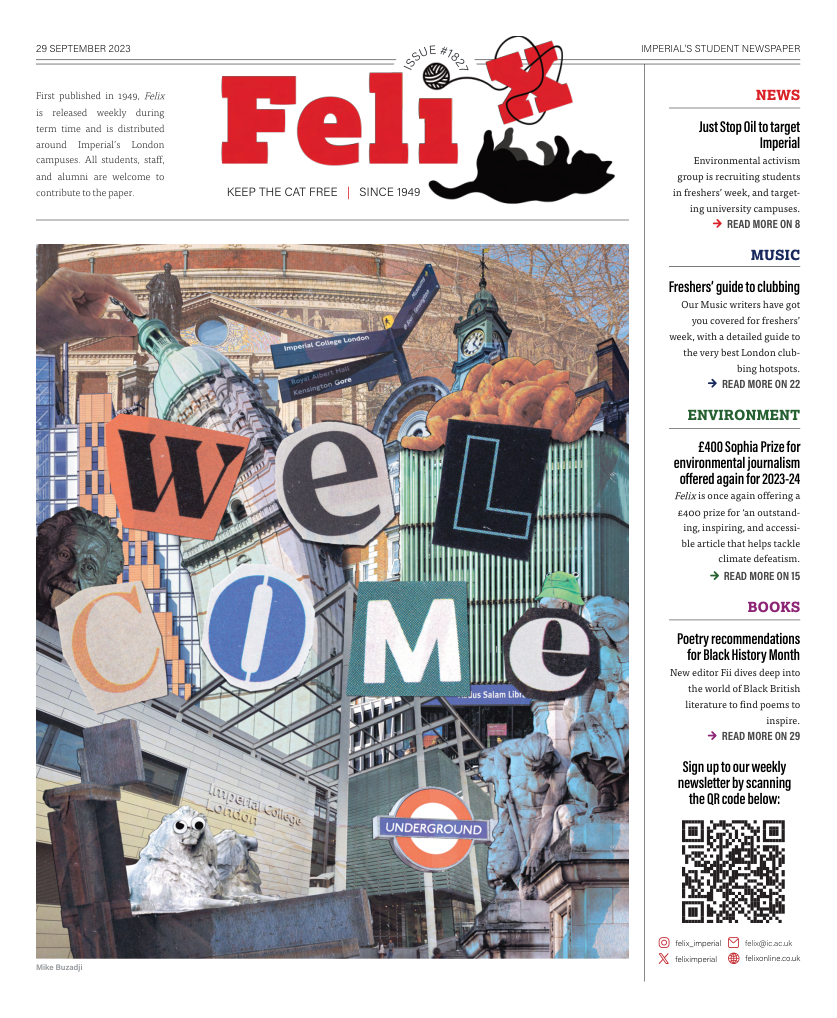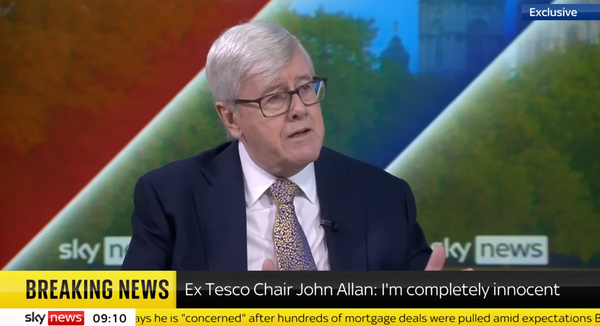Felix Editor to be appointed from now on, not elected
Change is biggest shake-up to paper's structure in 50 years
This year, for the first time in Felix history, the paper’s Editor-in-Chief was appointed by a selection panel, after Union Council approved a motion by former Felix Editor and Student Trustee Sam Lovatt to change the selection process.
Since 1972, the Felix Editor has been elected each year in a Union-wide ballot, usually together with the other sabbatical officers of the Union during the annual Leadership Elections.
‘This process is no longer fit for purpose’, reads the motion to change the process. ‘Three of the last four Felix Editors have operated at a standard below that expected of them, leading two of them to resign before the end of their year in office.’
In the new appointment process, applicants for the role will be required to submit a CV, alongside answers to three questions. The questions will assess their knowledge of higher education, Imperial College and the student union.
Their applications will be reviewed by a selection panel for shortlisting. Under normal circumstances, the panel will have a student majority, and will consist of the Union’s Director of Membership Services, a Student Trustee of the Union, the Union Council Chair, the outgoing Felix Editor, and a representative from the College Communications Division.
Shortlisted candidates will be invited to submit a short article in response to a prompt devised by the entire panel. The submissions will be assessed only by those panel members representing Felix and the College Communications Division.
After this, all shortlisted candidates will be invited to an interview, which assesses their ability to manage stakeholders, lead the Felix team, and report on current affairs relevant to Imperial students. In addition to answering a series of questions from the interviewers, candidates will be required to edit a short written piece filled with errors. Only the Director of Membership Services, a Student Trustee, and the Council Chair will conduct the interview under normal circumstances.
The entire panel will then convene to decide upon the best candidate. If there are no appointable candidates, the appointment process will be re-opened.
Blast from the past
I dug deep into the Felix archives to learn how the Editor became a sabbatical officer.
The motion to change the selection process for the Felix Editor came almost exactly 51 years after the first ever vote for the position took place. On 12th and 15th May 1972, Imperial students took to the ballot to appoint Oliver Dowson, a first-year Maths student, to the role. Prior to this, the Editor was selected by the volunteer staff that worked on the paper.
That first election was notable in more ways than one for the newspaper. In addition to being the first Editor elected by the student body, Dowson would become the first to serve in the role as a sabbatical officer of the Union. This would make Felix the only British student newspaper with a full-time editor-in-chief.
Furthermore, Dowson would become the first Felix Editor to produce a weekly publication.
“It was very much a hobby-type newspaper before that,” said Dowson, when I spoke to him last Thursday. “It was not much more than a dozen or so of us, who met up on an evening or two a week to put together some content.”
The paper was published fortnightly before Dowson’s election, and the Editor, who was then a full-time student, had to juggle their Felix duties with university studies. Their only privileges in the role were a guaranteed room in a College hall of residence (rent not paid for), and the right to drink from the Editor’s tankard in the Union Bar.

Many editors struggled to manage the workload; then, as today, in a university of STEM students, the paper struggled to find contributors. Indeed, Dowson’s immediate predecessor bemoaned ‘the prevalent apathy at IC’, saying it made editing Felix ‘infinitely more difficult’.
One Editor in 1969 resigned, citing ‘the lack of staff working for Felix at the present time’. ‘Left [with] a straight choice between carrying on in my present capacity and ultimately destroying any chance of getting a good degree at the end of the year, or resigning the editorship, I have decided on the latter course,’ he wrote.
As early as 1959, one prescient Editor proposed a solution: ‘If the Union could be persuaded to pay out some more money and employ at least two permanent staff for their newspaper, then perhaps the weekly Felix will become a possibility!’
And so, 13 years later, such an arrangement was reached, albeit with only a single sabbatical officer at the helm. Dowson recalls that the very first Felix Editor election was something of a shoo-in. “I didn’t have much opposition, as I remember… none of the other volunteers wanted to go on and become the full-time Editor.” His only opposition was “one guy who was heavily into the Socialist Worker fraternity, and spent most of his platform talking not about the newspaper, but the need to spend time waving the flag for workers.”
Imperial has changed significantly since that time, but Felix continues to publish, and the editor-in-chief remains a sabbatical officer. Talking to past Editors, I was surprised to hear that our own difficulties recruiting students were a source of frustration even then. As one who edited the paper in the early 1970s put it to me, “Students enjoyed reading Felix, but few showed much interest in how it was produced”.
This year, we would like to bring you content that informs, engages and entertains, and to give the paper and its content a bigger presence at the College. But to do that, we need to add to our dedicated team of contributors. Therefore, I would like to reiterate the message in the editorial this week: if our content interests you, and you are at all considering getting involved, please get in touch! Open roles are advertised on page three of the print edition, but we are always looking for more contributors. If you have a skill set that you think could benefit the paper, please email me at felix@imperial.ac.uk.








